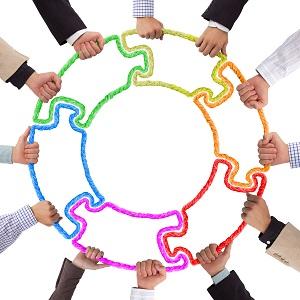Today, a High-Level Regional Policy Dialogue kicked off the new capacity building project “Accelerating the Transition to Circular Economy in the UNECE Region” to help countries address challenges and harness opportunities in key areas, including traceability of supply chains, innovation-enhancing procurement, and the management of waste.
The two key pillars of the project will be (1) the establishment of a multi-stakeholder knowledge sharing network to develop and disseminate evidence-based good policy practices among all UNECE member States; and (2) the roll out of gap analyses in selected countries to assess experiences and lessons learned and the development of policy briefs for discussion at regional policy dialogues and national workshops. This four-year project is managed in cooperation with the United Nations Environment Programme and funded by the United Nations Development Account.
The transition to a circular economy is a priority in the region, shaping the normative work of UNECE. At the 69th Commission session member States decided on “Promoting circular economy and sustainable use of natural resources in the UNECE region” to be a main theme for the upcoming years. As the world is using up resources at an increasingly rapid pace, we must find effective ways to meet current needs without compromising the ability of future generations to meet their own.
The circularity shift is a crucial step in this process, as it is a synergy topic at the interface between the environment and the economy. We need to change our resource management, our ways of production and our consumption behaviour. This is vital for the 2030 Agenda and the Sustainable Development Goals, and to promote a thriving economy that leaves no one behind – particularly in the context of the need to “recover better” post-COVID-19.
The panel discussion with a High-Level Opening stressed the importance of harnessing trade and economic cooperation to advance the circular economy and offered insights into the views and experiences of governments, international organisations, think tanks and the private sector. This Dialogue was also an official side event of the World Circular Economy Forum 2021, which is organized jointly by the Finnish Innovation Fund Sitra and the Government of Canada.
“For a country to endorse sustainable policies, it needs to be equipped with the right tools and knowledge to make decisions that do not compromise development objectives. Capacity building, through experience sharing, is key in this process”, highlighted Olga Algayerova, UNECE Executive Secretary. UNECE provides an opportunity to share best-practices and lessons learned that can guide countries’ efforts.
Shifting to a circular economy is a complex, cross-cutting challenge requiring policy interventions and coordination across many dimensions. Circularity represents an essential part of SDG 12 on Responsible Production and Consumption. “Circular Economy is first and foremost an innovation and economic opportunity framework. We need to make sure that we help avoiding that circularity is seen only as an environmental issue or as a waste and materials management issue”, Executive Officer Jocelyn Blériot from the Ellen MacArthur Foundation pointed out at the Regional Policy Dialogue.
The project launch preceded a series of discussions on circularity held in connection with UNECE’s trade-related inter-governmental meetings (e.g. Working Parties and Teams of Specialists) scheduled for the month of November. These events will discuss, among others, how respective workstreams can contribute to a more circular economic transition.


